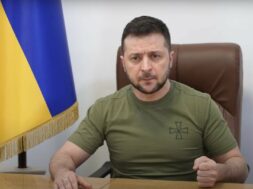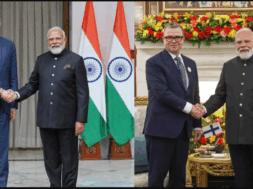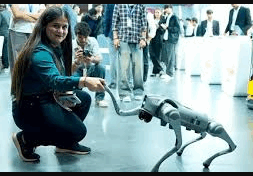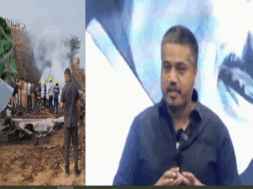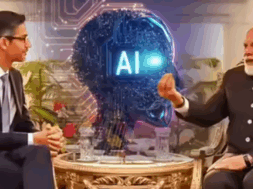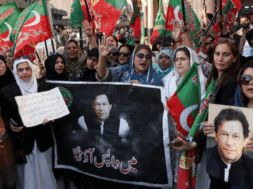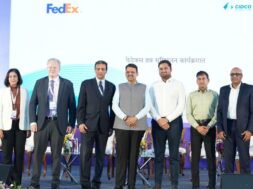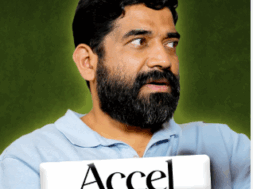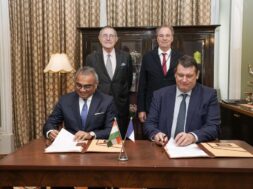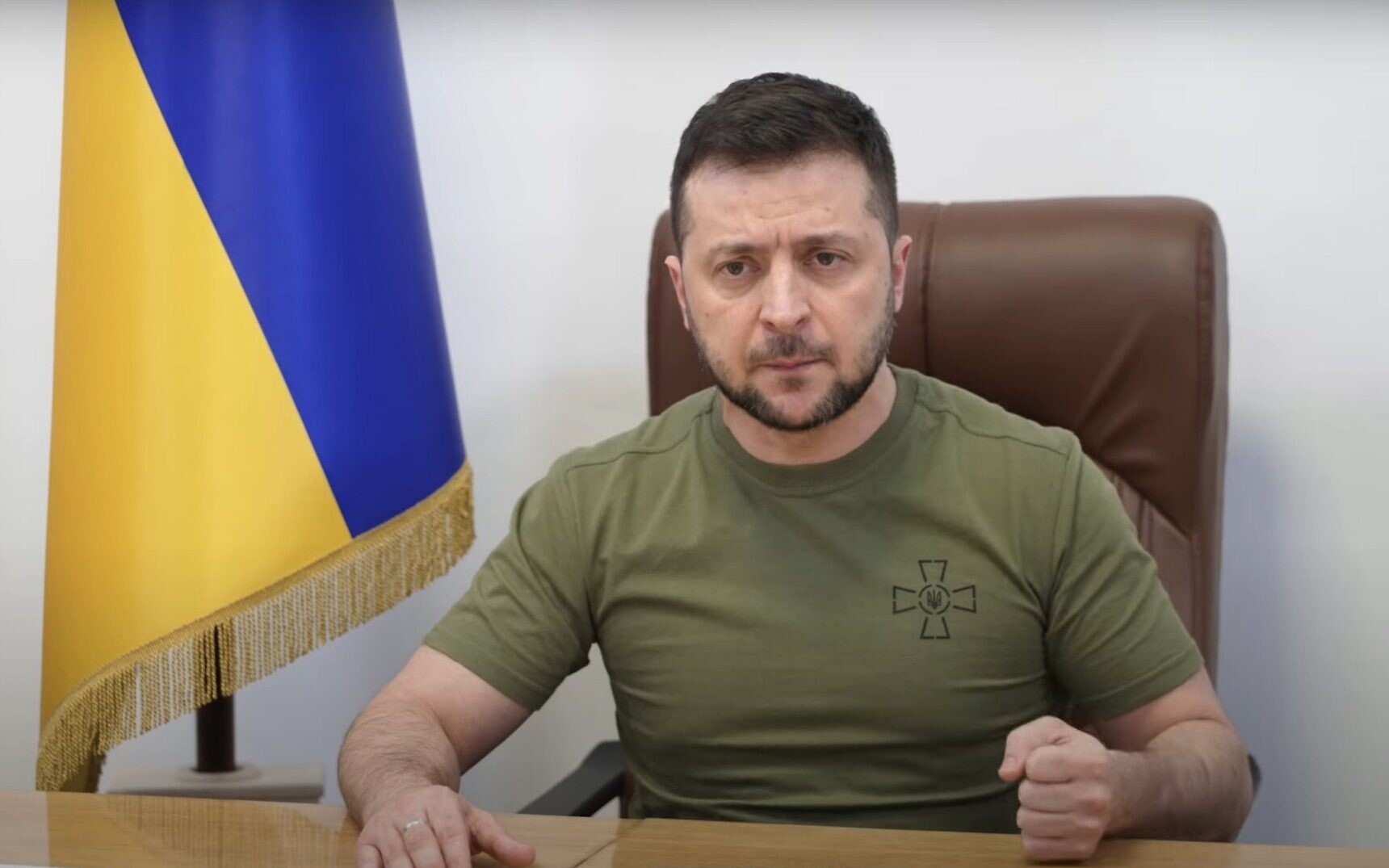
Ukraine War: India’s Balancing Act at the UN: Abstain from Voting in Russia-Sponsored Draft Resolution
Manas Dasgupta
NEW DELHI, March 24: India once again showed it was truly maintaining equidistance between the two superpowers, the United States and Russia, by abstaining from voting in the United Nations Security Council a Moscow-sponsored resolution on humanitarian crisis in Ukraine.
The voting on humanitarian crisis came even as Ukraine accused Russia of deploying phosphorus weapons, which spread a powder that ignites when in contact with oxygen and causes severe burns. “This morning, by the way, phosphorus bombs were used. Russian phosphorus bombs. Adults were killed again and children were killed again,” the Ukrainian president Volodymyr Zelensky said.
India had earlier abstained from voting in the UNSC the US-sponsored resolutions against Russia for invasion into Ukraine.
India, along with 12 other UN Security Council members, abstained on a draft resolution by Russia and cosponsored by Syria, North Korea and Belarus. It failed to get adopted in the Council on Wednesday as it did not get the required nine yes votes to pass. Russia and China voted in favour of the resolution while there were no countries voting against. India and the remaining Security Council members abstained.
The NATO leaders, who met on Thursday to address Russia’s aggression against Ukraine, condemned Russia’s action in the strongest possible terms and called upon President Vladimir Putin to immediately stop the war and withdraw military forces from Ukraine. In a statement, they urged Russia to comply with the 16 March ruling by the UN International Court of Justice and immediately suspend military operations. ‘Russia’s attack on Ukraine threatens global security. Its assault on international norms makes the world less safe. President Putin’s escalatory rhetoric is irresponsible and destabilizing,’ it said. The NATO heads also agreed to give further support to Ukraine and continue to impose costs on Russia.
The NATO resolution came soon after the Ukrainian President Volodymyr Zelensky in an emergency video address to the NATO summit called for “military assistance without limitations.” It was the first of three urgent meetings US President Joe Biden and world leaders are holding in response to the Russian invasion. Zelensky pleaded for anti-air and anti-ship weapons, asking “is it possible to survive in such a war without this?” “It feels like we’re in a grey area, between the West and Russia, defending our common values,” Zelensky said in his video address to the summit.
“To save people and our cities, Ukraine needs military assistance without restrictions. In the same way that Russia is using its full arsenal without restrictions against us,” he told NATO representatives via video-link. While thanking members of the Western military alliance for the defensive equipment provided so far, he appealed for offensive weapons. “You can give us one percent of all your planes. One percent of your tanks. One percent!”
Zelensky also accused Russia of deploying phosphorus weapons, which spread a powder that ignites when in contact with oxygen and causes severe burns. “This morning, by the way, phosphorus bombs were used. Russian phosphorus bombs. Adults were killed again and children were killed again,” Zelensky said.
“The Alliance can once more prevent the death of Ukrainians from Russian strikes, from Russian occupation, by giving us all the weapons we need.” Russia will “destroy freedom” in Europe and pursue its neighbous, Zelensky warned Swedish lawmakers in an address. “If Ukraine wouldn’t endure and protect ourselves, it would mean that… all neighbours of Russia are in danger from now on,” he said in a video link speech that got a standing ovation.
“Russia went to war against Ukraine because they want to advance further in Europe, they want to destroy freedom in Europe.” “This is a fundamental challenge for the European security and defence system”, he said, calling for Europe to issue hard-hitting weekly sanctions packages against Russia.
He warned Sweden that Moscow had its Baltic Sea island of Gotland in its sights. Sweden reopened its garrison on Gotland in 2018, in the wake of Russia’s annexation of Crimea, after shutting it down in 2004. “It would mean that you are in danger, because it is only the sea that divides you and this aggressive policy”, he said. “Russian propagandists already discuss on air, on TV broadcasts, how Russia will occupy Gotland and how they will control it for decades”, he added.
Zelensky earlier on Thursday said Ukraine was fighting for the security of the whole of Europe and should be a full member of the European Union. Speaking to Swedish lawmakers, Zelensky said, “We are not fighting just for the people of Ukraine, but for Europe’s security and we have shown that we deserve to be a full-fledged member of the EU.”
NATO leaders are also extending the mandate of Secretary-General Jens Stoltenberg for an extra year to help steer the 30-nation military organisation through the security crisis sparked by Russia’s war on Ukraine. Stoltenberg tweeted Thursday that he is “honoured” by the decision of NATO leaders “to extend my term as Secretary General until 30 September 2023. “As we face the biggest security crisis in a generation, we stand united to keep our alliance strong and our people safe,” he said.
The former Norwegian prime minister was named to NATO’s top civilian post in October 2014. It’s the second time that his term of office has been extended. His mandate was due to expire in September.
NATO leaders, who met on Thursday to address Russia’s aggression against Ukraine, condemned Russia’s invasion of Ukraine in the strongest possible terms and called upon President Vladimir Putin to immediately stop the war and withdraw military forces from Ukraine.
In a statement, they urged Russia to comply with the 16 March ruling by the UN International Court of Justice and immediately suspend military operations. ‘Russia’s attack on Ukraine threatens global security. Its assault on international norms makes the world less safe. President Putin’s escalatory rhetoric is irresponsible and destabilizing,’ it said. The NATO heads have agreed to give further support to Ukraine and continue to impose costs on Russia.
NATO leaders are also extending the mandate of Secretary-General Jens Stoltenberg for an extra year to help steer the 30-nation military organisation through the security crisis sparked by Russia’s war on Ukraine. Stoltenberg tweeted Thursday that he is “honoured” by the decision of NATO leaders “to extend my term as Secretary General until 30 September 2023. “As we face the biggest security crisis in a generation, we stand united to keep our alliance strong and our people safe,” he said.
The former Norwegian prime minister was named to NATO’s top civilian post in October 2014. It’s the second time that his term of office has been extended. His mandate was due to expire in September.
On the Ukraine war font, a US official said the Russian forces seemed to be digging in 15 to 20 kilometres outside Kyiv, the capital of Ukraine, for a long haul as their progress into the country was slow and almost non-existent.
NATO leaders are refusing to rule out retaliation against Russia should it launch a chemical weapons attack on Ukraine — but British Prime Minister Boris Johnson thinks Moscow has already gone too far. “The reality is that (President) Vladimir Putin has already crossed the red line into barbarism,” Johnson told reporters Thursday as he arrived for summit of NATO leaders. Johnson says that “it’s now up to NATO to consider together the appalling crisis in Ukraine, the appalling suffering of the people of Ukraine, and to see what more we can do to help the people of Ukraine to protect themselves.”
As an organization, NATO is not providing weapons to Ukraine. The 30-nation alliance refuses to send troops to Ukraine, either for combat or peacekeeping, and has said it will not deploy aircraft to protect civilians or police any no-fly zone. But member countries are providing weapons and other assistance, individually or in groups.
Meanwhile, the Ukrainian ambassador to India Igor Polikha said the Ukraine war was the result of a “lot of miscalculation of Russian propaganda.” He said he would have been the “happiest ambassador” if India’s position moved closer to Ukraine. “It is like the second World War when Nazis were destroying towns, villages, hospital, everything,” Polikha said on Thursday. On India’s tough balance on the Ukraine war, the ambassador said he appreciated New Delhi’s moves, including the abstention at the UN yesterday on a Russian resolution on the “humanitarian crisis in Ukraine.”
